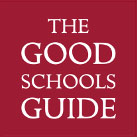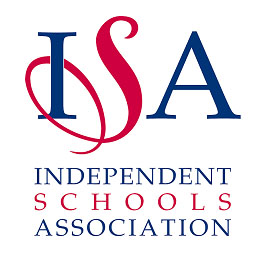
The Good Schools Guide Review
What The Good Schools Guide says
Head
Since September 2017, Seth Bolderow MSt BA, early 40s. Succeeded the much-loved Nick Baker who helped set up the school and ran it alongside the prep school for two years, but it was time to hand over the tiller to refocus on the prep school. Bolderow was regarded by some parents, who felt that they had bought into the ‘Nick Baker ticket’, with some suspicion initially. Formerly deputy head of Harrow International School in Hong Kong, Bolderow, whose name isn’t the only thing that seems to have stepped out of a Thomas Hardy novel, hails from farming stock in Norfolk and was educated at Norwich school, and Exeter University where he studied classics. He was awarded a distinction for his Mst in Greek and Latin languages and literature at St Anne’s College Oxford, and was sorely tempted by a life of academia. However, drawn to the camaraderie of the classroom and sports pitches, he commenced his teaching career at Blundell’s, then Uppingham and King Edward’s School Bath, before taking on head of Sixth Form at The John Lyon School and then making the move to the Far East with his girlfriend, soon to become wife. They have two young children. His proudest moment, he says, was delivering his son, less than a year old now, as there was a dearth of midwives at the time.
Full of appreciation for the wider network of support and expertise afforded by the Alpha Plus group (a common theme among heads of school groups, we find). The Director of Schools, Jenny Stephen and the recently appointed CEO Mark Hanley-Brown get a special mention, described as having ‘education pedigree’. Bolderow’s functional office is warmed by evidence of his passion. Piles of Classical Loebs and ancient Greek and Latin texts line the shelves. Quietly modest and understated, he is not one to play table tennis with the boys, as his predecessor was, and he keeps a respectable distance from the parents. While one wouldn’t ascribe to him an urbane charm, he is authentic, a good listener and a man with a clear and defined purpose, and has won the admiration and respect of parents and boys alike.
Academic matters
First set of GCSE results in August 2018, but internal data suggests pupils make very good progress, and systems in place to track progress constantly. ‘For GCSE boys’, says school, ‘projected grades given to boys and parents after year 10 and 11 mocks are tracked against independent baseline data (MidYIS). Using Attainment 8 as an overall measure for each boy, we are adding 0.22 of a grade on average, with 29 per cent of cohort adding more than one grade.’ Almost every parent we spoke to praised the quality of the teachers and how impressive both their subject knowledge is and their understanding of the ethos of the school and commitment to it. A blend of experienced and relatively newly qualified, an equal split of men and women, they are recruited from both sectors, state and independent, and while naturally differ in style manage to combine being unpretentious with a traditional approach. ‘All of our teachers are really lively,’ averred the boys we spoke to.
A traditional academic curriculum includes Latin with German, French and Spanish the choice of modern languages. Native speakers and those who show a particular aptitude will be invited to take the GCSE as early as year 8. Graphic design, no DT. Practical skills are taught, the use of laser cutters etc. An esoteric part of the curriculum is that every pupil to age 16 is taught Philosophy and learning skills. The head of Philosophy is keen to throw everything at them, from Plato and Aristotle to Kant and Hobbes. The aim, to create independent learners who can think for themselves – qualities top universities are crying out for. Boys setted for Maths from year 7 and in English and science from year 9. There are five sets for Science. Beginners’ sets for German and Spanish in year 9. Class sizes are small, currently 16. Judicious and sensible use of sets and there is movement up as well as down. A healthy broad range of ability when we visited, but as the school fills up, and word spreads, we suspect intake likely to become more and more academic.
A specialist SENCO but no one-to-one support in the classroom. Needs of anyone with learning difficulties are met in the classroom through differentiation. A tiny few need EAL support (about 5/225). Lucid Exact Software used to screen boys once they’re here to spot any difficulties, like dyslexia. School works closely with an educational psychologist who is brought in when there’s a problem. They avoid labelling as much as possible, but Mr Bolderow said that around 25 per cent of current pupils are on the SEND register. Whatever their needs, he says, they can all manage in class without individual support.
First sixth form intake in September 2018, most moving up from year 11, with a few places for external applicants. The sixth form will grow organically – from an initial 40 – as the larger year groups move up the school.
Games, options, the arts
Traditional sports, rugby, football, cricket, tennis and athletics, with lots of competitive fixtures. Two afternoons a week are timetabled for games and they play matches against leading London secondary day schools including Latymer Upper, Westminster and Kingston Grammar as well as the top two years of the prep schools. The downside, say a number of parents, is the one hour plus round coach trip to the sports ground, which is Trailfinders in Ealing. Some wonder how much time they actually get to play when so much time is taken up travelling. Nonetheless, the U15 football team had an impressive season, reaching the quarter final of the ESFA small schools cup. They are starting to punch above their weight.
The director of sport, an ex-Saracens rugby player and elite RFU referee, is highly praised by colleagues and parents. A ‘fantastic sportsman, he is increasingly attracting sporty boys,’ say some parents we spoke to. One parent was particularly impressed by his attitude to sport and exercise. It is not just about competition and fixtures, but laying down the foundations for a healthy lifestyle and contributing to a mental health. Year 10 boys are linked to gyms and can opt for boxing, spinning etc, and there are a range of minor sports offered from fencing to basketball. Even unenthusiastic sportsman have to do one afternoon of physical activity in the sixth form – other afternoons they can do work in the community or work experience.
Drama is vibrant and everyone gets a chance to be involved. Last year they did a ‘promenade’ production to great acclaim, as the actors moved round parts of the school performing. This year we witnessed the dress rehearsal for an edgy play set in a prison written by the head of drama. She fizzes with excitement as every head of drama should, and the boys respond positively. Some prefer to do backstage work, whether it be costumes and make-up or lighting and set design. Productions, small and large, throughout the school year, including a Christmas Cabaret. LAMDA very popular in years 7, 8 and 9 and the teacher is in school most days
‘The head of music is an inspiration,’ say the boys. A French horn player, he has a fleet of colourful plastic brass instruments and with his combination of music technology and practical playing gets all the boys involved. There are already a number of groups including a wind ensemble, brass group and rock school plus DJ Buster teaches them to DJ. While the school is still relatively youthful it is hard to get the strength in depth for a whole school orchestra, although there is a chamber orchestra which will expand to full orchestra as the school grows.
Art technician specialises in sculpture and this was evident in the displays. Much use is made of the kiln. We saw a variety of silkscreens, and while there is a separate art and graphic design teacher, there is much crossover in the work produced. Boys’ artwork is prominently displayed in the headmaster’s office and throughout the school, but there is also a lot of artwork that has not been done by the boys – perhaps to fill the space? A number of exhibitions during the school year; the younger boys exhibited their art and graphic design work at the Saatchi gallery.
Lots of trips: ‘they are always off somewhere,’ remarked one parent, to Croatia (Geography), Barcelona (combined Spanish and football tour), Pompeii (classics) and closer to home. Located in the heart of London, they don’t waste the opportunity to take advantage of the museums and theatres on their doorstep.
Activities take place at the end of each day and are built into the timetable. As well as ‘academic catch up’ clubs in every subject, they can choose from a range of activities, from bridge, to cinema, scientific illustration (an example of their innovative use of cross-curricular expertise) to boxercise.
Mr Bolderow is a governor at Queen’s College and already the two schools are forming alliances, whether it be social, musical, Duke of Edinburgh awards or lectures. A relationship is also developing with Francis Holland Regent’s Park, so there will be lots of opportunity to experience working alongside girls.
Background and atmosphere
The last link in the chain of the formidable Wetherby schools, owned and managed by the private equity backed Alpha Plus group, Wetherby Senior School caters for the oldest boys in the group but, founded in September 2015, is the youngest school. Alpha Plus have cleverly given all their Wetherby schools the signature colours – the red and grey, evident from moment you arrive at the brightly painted red front door, to the furnishings throughout the school, and the boys in their smart uniforms – and also through each school runs an ethos of traditional boys’ education blended with a modern and global outlook.
The school opened in 2015 with 67 boys in years 7 and 9. There are now over 200 and the maximum number will be 600. ‘The size is an essential part of our ethos,’ explains Bolderow. ‘We are big enough to be able to compete, have an orchestra, field a number of different team sports, but not so big as to lose the intimacy that we value so highly.’ Expectations are high, but boys can be themselves and there is no particular ‘Wetherby mould’ that they feel they should fit into.
Set in the heart of central London, the main site is in a surprisingly quiet corner of Marylebone Lane, tucked behind the famous haberdashery shop with its colourful array of ribbons. A Victorian mansion block, it has the benefit of being a traditional building with soul, but high ceilings, large classrooms and a sense of space. A second, newly purchased, similar five storey building, Hannah House in Manchester Street, is largely the base for the junior years, and the centre for the new sixth formers in Marylebone Lane also has space for a gym in the basement. A flow of boys make the five minute walk between buildings, as the division of use is largely by department, but timetables are designed to minimise movement for the youngest boys. The new building has a large cafeteria, signature red benches and grey tables and staff eat with the students. Sixth formers can also have lunch and snacks throughout the day in their café in the Sixth Form centre in Marylebone Lane.
Pastoral care, well-being and discipline
One message we received very clearly from parents is that the care taken by all the staff and their sensitive approach to the boys’ welfare is remarkable. Whether a response to a particular crisis, or the general awareness of the difficulties of being a teenager in the 21st century, the school takes it seriously and responds professionally but with compassion. They will not hesitate to bring in professional counsellors for support and one mother remarked how pleased she was that her son came home buzzing from a series of talks from ‘the good lad initiative’. A group of cool young men promoting ‘positive masculinity’.
Boys are split into horizontal groups within their year group, known as Tributaries or ‘Tribs’, and assigned a tutor, who not only sees them every morning for registration but also meets with them for an hour each week. The tutor, overseen by a head of section, is responsible for the welfare of the boys in their care as well as keeping an eye on their academic progress and behaviour. The system works well, was the unanimous verdict of the parents we spoke to, and the communication between tutor and parent is invaluable.
Mr Bolderow sees a different tutor group each Friday to talk about the school. They have about 20 minutes to ask questions and make suggestions. ‘This is usually about the food,’ admits Bolderow. The chef here (god forbid that you should refer to her as cook) used to work at Soho House and while the food is delicious, there was a plea from the boys to tone down the sophistication of the recipes, since when baked potatoes have been back on the menu. There is a busy school council which consists of representatives from each Trib, and which reports to school in assembly.
A tiny courtyard at the back of the Marylebone Lane building makes it possible for boys to play football, and they do; there are two common rooms here complete with table football, and a Nintendo Wii. A range of lunchtime activities at Hannah House, indoor and out, as well as time in the park. Most of the boys we saw in break were staring at their ‘phones, disappointing but a reflection of the age. A number of parents we spoke to would welcome a more robust approach from the school on the use of mobile phones.
Only sixth formers allowed out to lunch. We happened to see a number of younger boys filing into a local tea shop at the end of the day and were impressed by their deportment in the bustling streets of Marylebone.
Pupils and parents
Wetherby Senior couldn’t be more of a reflection of its central London location. Thoroughly multicultural, one parent might be Swiss, the other Swedish. Whilst the majority of the boys are long term residents of the UK, the school is a truly global environment with boys from all over Europe as well as Russia, the Middle East and the USA. Most come from London prep schools.
Boys we met and spoke to were refreshingly individual and polite. They look you in the eye, are confident but not arrogant. This is far from a macho culture. Boys here can be any kind of peg, and will still fit the hole.
Entrance
Academically selective at 11, 13 and 16. Tests in English and Maths at 11, but school will also give equal weight to the reference from his current school and his performance at interview. For 13+ entrance all boys will sit the Common ISEB pre-test in year 6 together with an interview. Always worth checking for the occasional place. They are looking for boys who will contribute to school life and benefit from the rounded education.
Places available at 16 and an offer is made based on GCSE results.
Exit
At the time of going to press, no cohort has left the school, but all boys are prepared for university, and the expectation is that the most academic will go to the top US and UK universities. ‘Staff are experienced in supporting applications to UK universities and the school will be working with US university specialists to support boys who are aiming to study further afield.’
Our view
Wetherby Senior could not have arrived at a better time. Parents of boys will be flocking to its red door in this overheated senior school market, in which it is particularly hard to find good schools for boys. If the school continues along the trajectory it has set for itself it will only become ever more popular. A marvellous education for the modern teenage boy.
Wetherby Senior sixth formers have been snapping around London, taking photos of what our capital city means to them.
Check out Wetherby Senior’s final issue of The Barometer for...
Wetherby Senior sixth formers have been snapping around London, taking...
What The Good Schools Guide says Head Since September 2017,...



